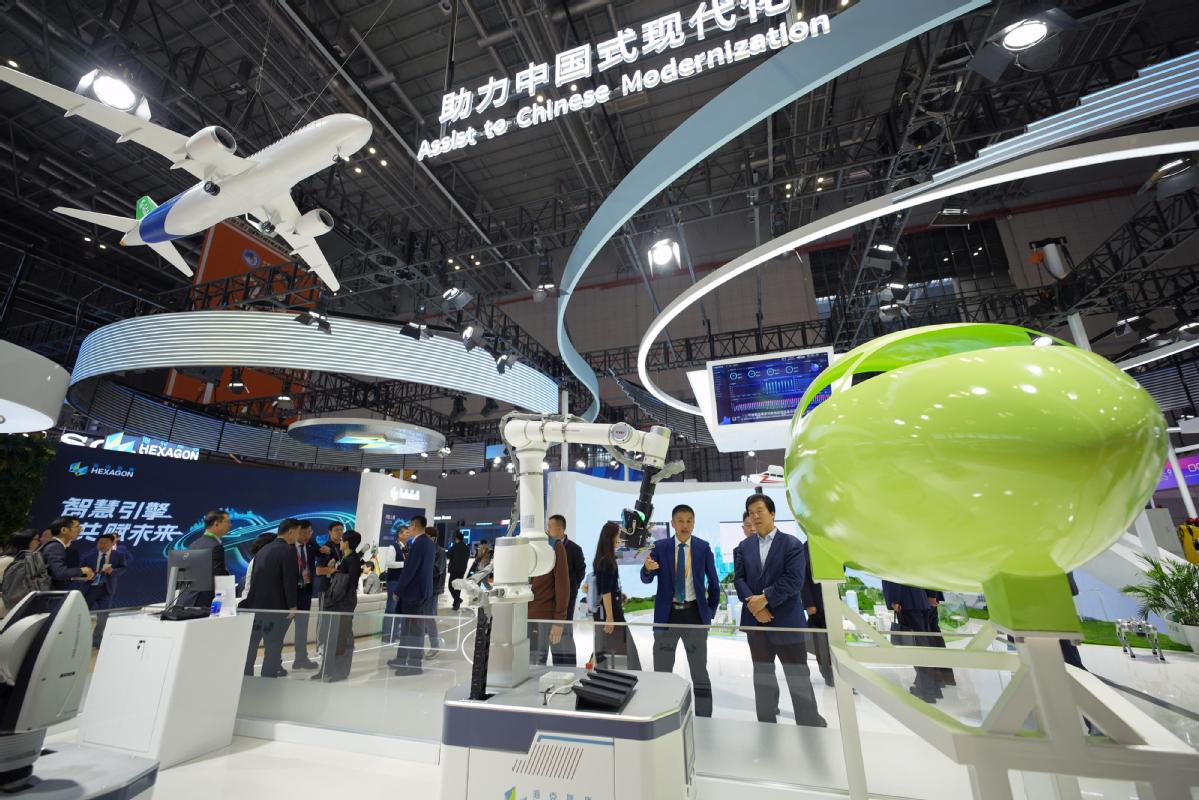Hexagon to build smart park in Shenzhen


Swedish technology company Hexagon will continue to step up investment in China and seize the immense opportunities presented by the country's sharpened focus on bolstering digital transformation and industrial innovation, said a senior executive of the company.
The company has complete research and development, manufacturing and supply chain systems in the Chinese market, said Li Hongquan, vice-president of Hexagon global and president of Hexagon China, adding that the country is the company's biggest single market, with revenue accounting for about 20 percent of its global total.

As a leading global provider of information technology solutions, the company has contributed to China's industrialization and the high-quality development of its manufacturing sector, while integrating sensors, digital twin and virtual simulation technologies with artificial intelligence, Li said.
According to Li, the company will build an intelligent industrial park covering the R&D of humanoid robots, AI and manufacturing in Shenzhen, Guangdong province, with construction expected to begin in the third quarter of this year.
It will invest more in localized R&D, accelerate the localization of high-end measurement equipment and industrial software in China and provide tailor-made solutions in accordance with the demands of Chinese clients.
According to him, China's emphasis on the development of new quality productive forces and digital transformation, as well as technological revolution brought about by AI and the pursuit of green and sustainable development offer the company many new opportunities.
Li said that currently the company serves more than 40,000 Chinese enterprises in fields such as aerospace, shipbuilding and high-end equipment. It has established an intelligent manufacturing research institute and five R&D centers nationwide, and invested heavily in the R&D of innovative technologies.
China is at the global forefront of manufacturing, new electric vehicles and humanoid robots, with a solid manufacturing foundation and well-educated engineers, Li said, adding he is bullish on the prospects of the growth potential from the Chinese market.
Hexagon has launched its first humanoid robot, which could be applied into a wide range of industrial scenarios, such as automotive, aerospace, transportation, warehousing and logistics.
"China boasts the world's most complete industrial chain and is the largest application market, which is crucial for the development and implementation of humanoid robots." Li said the company will increase inputs in the humanoid robots field and seek more cooperation opportunities with local partners.
China ranked as the world's largest manufacturer for the 15th consecutive year in 2024, and its manufacturing output accounted for about 30 percent of the global total, according to the Ministry of Industry and Information Technology.
Zhou Mi, a senior researcher at the Chinese Academy of International Trade and Economic Cooperation, said that China has not only lowered the threshold for foreign investment, but also introduced favorable policies for key industries as well as R&D and innovation, in order to guide and support foreign capital to flow into the high-tech sector.
Chinese enterprises could learn advanced technologies and management experience from their foreign counterparts and improve innovation capacity and competitiveness, thereby injecting impetus into economic transformation and upgrading, Zhou said, adding that the increase in foreign investment in China's high-tech industry will yield positive returns for both sides.
A total of 30,014 foreign-invested enterprises were newly established in the Chinese mainland in the first six months this year, representing a year-on-year growth of 11.7 percent, according to the Ministry of Commerce.
The actual use of foreign direct investment in high-tech sectors reached 127.87 billion yuan ($17.8 billion), with FDI in the aerospace equipment manufacturing sector and medical instrument manufacturing sector growing by 36.2 percent and 17.7 percent, respectively.
"Foreign enterprises have been, and will hopefully remain, a key contributor to the Chinese industrial modernization drive," said Denis Depoux, global managing director at management consultancy Roland Berger.
China is committed to further opening up its services sector. Along with this transformation, there are plenty of opportunities for international collaboration, investment and joint development, he added.




































